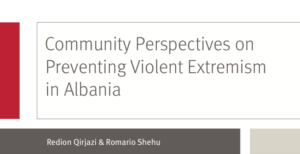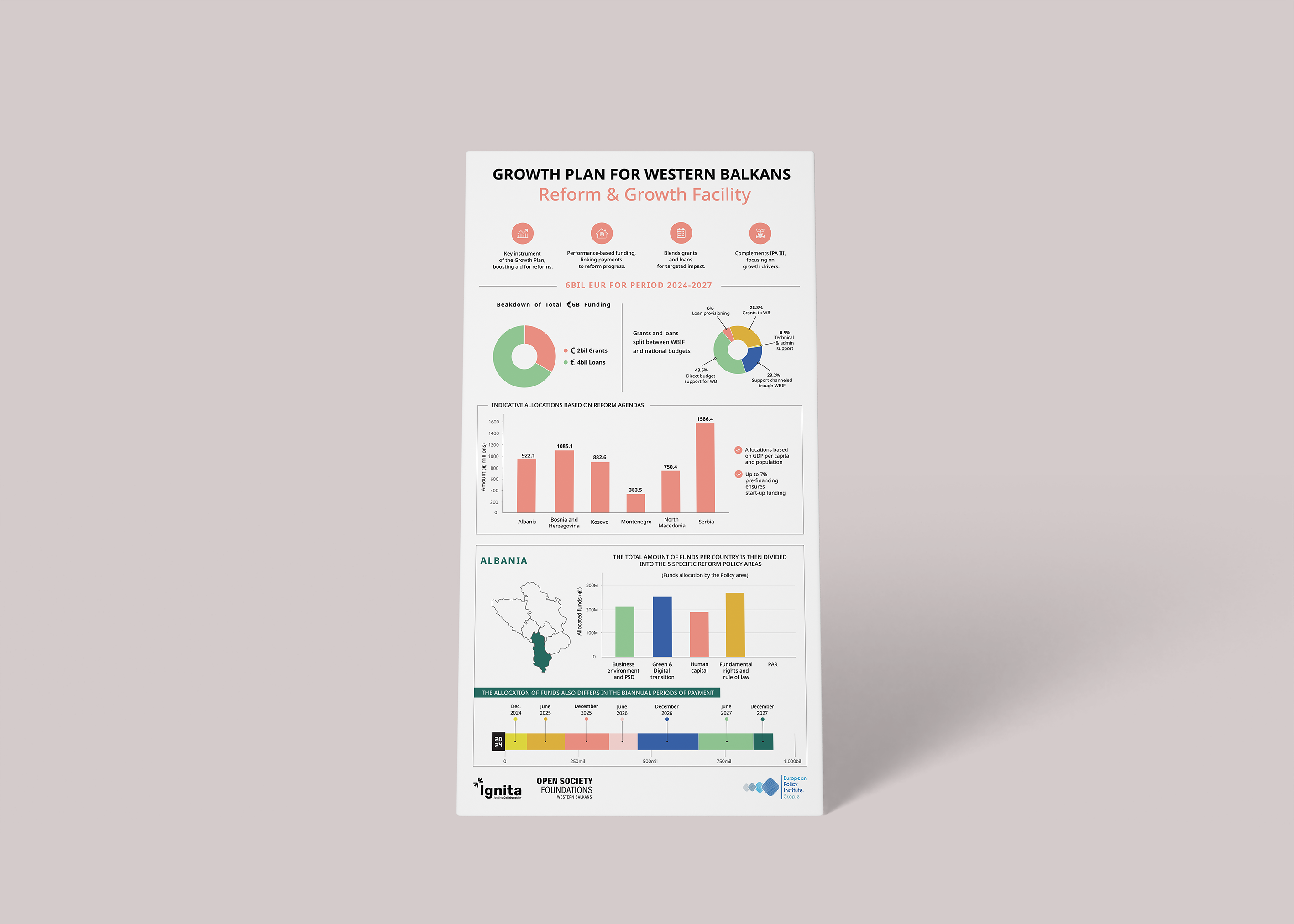Country case study: Community Perspectives on Preventing Violent Extremism in Albania
 November 2018 – This research focuses on the community as the primary unit of analysis and its main purpose is first to help reveal what factors and actors make communities resilient or vulnerable towards violent extremism (VE) and how they interact to produce certain effects and second to identify potential actions for the future prevention of VE.
November 2018 – This research focuses on the community as the primary unit of analysis and its main purpose is first to help reveal what factors and actors make communities resilient or vulnerable towards violent extremism (VE) and how they interact to produce certain effects and second to identify potential actions for the future prevention of VE.
This research examined the differences between affected and unaffected communities in three municipalities –Tirana, Korça and Kavaja – in an attempt to identify the underlying structural, social and ideological causes that account for such perceived difference between the communities (factors and actors). Through field research, it became clear that factors and actors of community resilience to VE fell into three major categories: ideological, socio-economic and structural.
Click to download Community Perspectives on Preventing Violent Extremism in Albania (ENG) and Perspektivat Komunitare për Parandalimin e Ekstremizmit të Dhunshëm në Shqipëri (ALB) .
This country case study on Albania was produced, alongside three others covering Bosnia-Hercegovina, Kosovo and Macedonia, in the framework of a participatory research project on “Opportunities for Preventing Violent Extremism in the Western Balkans” supported by Berghof Foundation.





